#Invisibility is weird
Explore tagged Tumblr posts
Text
"good person disease" is shriveling and dying within me. I'm leaving and never coming back.
#The compulsive need to be a nice person in every situation and/or socially viewed as a morally correct person regardless of actual ethics#The self is a construct and I never had a chance to construct her#Multilayered facets of my humanity waving hello in my 30s because they never got a chance to before#Queer poc grief is weird#Invisibility is weird#The interpersonal#Q#I hide things in my queue when I feel self-conscious about them how silly is that?
2 notes
·
View notes
Text
Mini comic i drew the first panel of literal months ago and decided to finish in one sitting
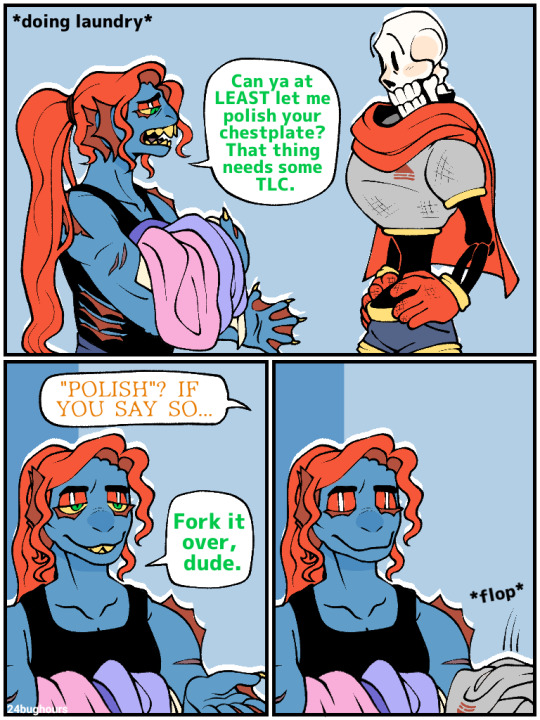

After this incident early in their friendship, Undyne would find out that
1. BOTH of the skeleton brothers can break the laws of physics, and 90% of the time its in really mundane ways
2. She IS still buffer than Papyrus, she was just shocked he had any "muscle mass" at all
#schrodinger's muscles#seriously. everyone talks about how sans has a weird invisible quantum physics tummy but what abt my boy papyrus#hes got the same thing going on with his cool dude muscles#and this was also mostly me being self indulgent with the undershirt thing but. we dont have to talk about that#undertale#papyrus#papyrus undertale#skelebros#undyne#undyne undertale#i really like drawing undyne. like a lot#i made a of her like 2 years ago and now its the only way i can draw her. i just love it too much#and i just love her okay#papyrus & undyne#my art#mini comic#undertale comic#undertale fan comic#undertale fanart#can you tell that i get lazy with my panel layouts
980 notes
·
View notes
Text
what if i said 60s space age inspired Sue Storm and Reed Richards being cute. what if. oh and theyre in vogue.


inspiration vvv

#giggles#my art#e2eart#marvel comics#fantastic four#fantastic 4#susan storm#reed richards#mr fantastic#the invisible woman#fantastic four fanart#suereed#theyre inlove your honour#marvel#sues boots look weird bc i couldnt decide on a colour!!! aaeeughhh
309 notes
·
View notes
Text
AI “art” and uncanniness
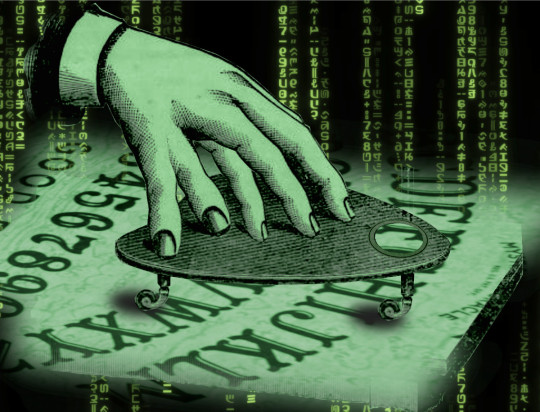
TOMORROW (May 14), I'm on a livecast about AI AND ENSHITTIFICATION with TIM O'REILLY; on TOMORROW (May 15), I'm in NORTH HOLLYWOOD for a screening of STEPHANIE KELTON'S FINDING THE MONEY; FRIDAY (May 17), I'm at the INTERNET ARCHIVE in SAN FRANCISCO to keynote the 10th anniversary of the AUTHORS ALLIANCE.

When it comes to AI art (or "art"), it's hard to find a nuanced position that respects creative workers' labor rights, free expression, copyright law's vital exceptions and limitations, and aesthetics.
I am, on balance, opposed to AI art, but there are some important caveats to that position. For starters, I think it's unequivocally wrong – as a matter of law – to say that scraping works and training a model with them infringes copyright. This isn't a moral position (I'll get to that in a second), but rather a technical one.
Break down the steps of training a model and it quickly becomes apparent why it's technically wrong to call this a copyright infringement. First, the act of making transient copies of works – even billions of works – is unequivocally fair use. Unless you think search engines and the Internet Archive shouldn't exist, then you should support scraping at scale:
https://pluralistic.net/2023/09/17/how-to-think-about-scraping/
And unless you think that Facebook should be allowed to use the law to block projects like Ad Observer, which gathers samples of paid political disinformation, then you should support scraping at scale, even when the site being scraped objects (at least sometimes):
https://pluralistic.net/2021/08/06/get-you-coming-and-going/#potemkin-research-program
After making transient copies of lots of works, the next step in AI training is to subject them to mathematical analysis. Again, this isn't a copyright violation.
Making quantitative observations about works is a longstanding, respected and important tool for criticism, analysis, archiving and new acts of creation. Measuring the steady contraction of the vocabulary in successive Agatha Christie novels turns out to offer a fascinating window into her dementia:
https://www.theguardian.com/books/2009/apr/03/agatha-christie-alzheimers-research
Programmatic analysis of scraped online speech is also critical to the burgeoning formal analyses of the language spoken by minorities, producing a vibrant account of the rigorous grammar of dialects that have long been dismissed as "slang":
https://www.researchgate.net/publication/373950278_Lexicogrammatical_Analysis_on_African-American_Vernacular_English_Spoken_by_African-Amecian_You-Tubers
Since 1988, UCL Survey of English Language has maintained its "International Corpus of English," and scholars have plumbed its depth to draw important conclusions about the wide variety of Englishes spoken around the world, especially in postcolonial English-speaking countries:
https://www.ucl.ac.uk/english-usage/projects/ice.htm
The final step in training a model is publishing the conclusions of the quantitative analysis of the temporarily copied documents as software code. Code itself is a form of expressive speech – and that expressivity is key to the fight for privacy, because the fact that code is speech limits how governments can censor software:
https://www.eff.org/deeplinks/2015/04/remembering-case-established-code-speech/
Are models infringing? Well, they certainly can be. In some cases, it's clear that models "memorized" some of the data in their training set, making the fair use, transient copy into an infringing, permanent one. That's generally considered to be the result of a programming error, and it could certainly be prevented (say, by comparing the model to the training data and removing any memorizations that appear).
Not every seeming act of memorization is a memorization, though. While specific models vary widely, the amount of data from each training item retained by the model is very small. For example, Midjourney retains about one byte of information from each image in its training data. If we're talking about a typical low-resolution web image of say, 300kb, that would be one three-hundred-thousandth (0.0000033%) of the original image.
Typically in copyright discussions, when one work contains 0.0000033% of another work, we don't even raise the question of fair use. Rather, we dismiss the use as de minimis (short for de minimis non curat lex or "The law does not concern itself with trifles"):
https://en.wikipedia.org/wiki/De_minimis
Busting someone who takes 0.0000033% of your work for copyright infringement is like swearing out a trespassing complaint against someone because the edge of their shoe touched one blade of grass on your lawn.
But some works or elements of work appear many times online. For example, the Getty Images watermark appears on millions of similar images of people standing on red carpets and runways, so a model that takes even in infinitesimal sample of each one of those works might still end up being able to produce a whole, recognizable Getty Images watermark.
The same is true for wire-service articles or other widely syndicated texts: there might be dozens or even hundreds of copies of these works in training data, resulting in the memorization of long passages from them.
This might be infringing (we're getting into some gnarly, unprecedented territory here), but again, even if it is, it wouldn't be a big hardship for model makers to post-process their models by comparing them to the training set, deleting any inadvertent memorizations. Even if the resulting model had zero memorizations, this would do nothing to alleviate the (legitimate) concerns of creative workers about the creation and use of these models.
So here's the first nuance in the AI art debate: as a technical matter, training a model isn't a copyright infringement. Creative workers who hope that they can use copyright law to prevent AI from changing the creative labor market are likely to be very disappointed in court:
https://www.hollywoodreporter.com/business/business-news/sarah-silverman-lawsuit-ai-meta-1235669403/
But copyright law isn't a fixed, eternal entity. We write new copyright laws all the time. If current copyright law doesn't prevent the creation of models, what about a future copyright law?
Well, sure, that's a possibility. The first thing to consider is the possible collateral damage of such a law. The legal space for scraping enables a wide range of scholarly, archival, organizational and critical purposes. We'd have to be very careful not to inadvertently ban, say, the scraping of a politician's campaign website, lest we enable liars to run for office and renege on their promises, while they insist that they never made those promises in the first place. We wouldn't want to abolish search engines, or stop creators from scraping their own work off sites that are going away or changing their terms of service.
Now, onto quantitative analysis: counting words and measuring pixels are not activities that you should need permission to perform, with or without a computer, even if the person whose words or pixels you're counting doesn't want you to. You should be able to look as hard as you want at the pixels in Kate Middleton's family photos, or track the rise and fall of the Oxford comma, and you shouldn't need anyone's permission to do so.
Finally, there's publishing the model. There are plenty of published mathematical analyses of large corpuses that are useful and unobjectionable. I love me a good Google n-gram:
https://books.google.com/ngrams/graph?content=fantods%2C+heebie-jeebies&year_start=1800&year_end=2019&corpus=en-2019&smoothing=3
And large language models fill all kinds of important niches, like the Human Rights Data Analysis Group's LLM-based work helping the Innocence Project New Orleans' extract data from wrongful conviction case files:
https://hrdag.org/tech-notes/large-language-models-IPNO.html
So that's nuance number two: if we decide to make a new copyright law, we'll need to be very sure that we don't accidentally crush these beneficial activities that don't undermine artistic labor markets.
This brings me to the most important point: passing a new copyright law that requires permission to train an AI won't help creative workers get paid or protect our jobs.
Getty Images pays photographers the least it can get away with. Publishers contracts have transformed by inches into miles-long, ghastly rights grabs that take everything from writers, but still shifts legal risks onto them:
https://pluralistic.net/2022/06/19/reasonable-agreement/
Publishers like the New York Times bitterly oppose their writers' unions:
https://actionnetwork.org/letters/new-york-times-stop-union-busting
These large corporations already control the copyrights to gigantic amounts of training data, and they have means, motive and opportunity to license these works for training a model in order to pay us less, and they are engaged in this activity right now:
https://www.nytimes.com/2023/12/22/technology/apple-ai-news-publishers.html
Big games studios are already acting as though there was a copyright in training data, and requiring their voice actors to begin every recording session with words to the effect of, "I hereby grant permission to train an AI with my voice" and if you don't like it, you can hit the bricks:
https://www.vice.com/en/article/5d37za/voice-actors-sign-away-rights-to-artificial-intelligence
If you're a creative worker hoping to pay your bills, it doesn't matter whether your wages are eroded by a model produced without paying your employer for the right to do so, or whether your employer got to double dip by selling your work to an AI company to train a model, and then used that model to fire you or erode your wages:
https://pluralistic.net/2023/02/09/ai-monkeys-paw/#bullied-schoolkids
Individual creative workers rarely have any bargaining leverage over the corporations that license our copyrights. That's why copyright's 40-year expansion (in duration, scope, statutory damages) has resulted in larger, more profitable entertainment companies, and lower payments – in real terms and as a share of the income generated by their work – for creative workers.
As Rebecca Giblin and I write in our book Chokepoint Capitalism, giving creative workers more rights to bargain with against giant corporations that control access to our audiences is like giving your bullied schoolkid extra lunch money – it's just a roundabout way of transferring that money to the bullies:
https://pluralistic.net/2022/08/21/what-is-chokepoint-capitalism/
There's an historical precedent for this struggle – the fight over music sampling. 40 years ago, it wasn't clear whether sampling required a copyright license, and early hip-hop artists took samples without permission, the way a horn player might drop a couple bars of a well-known song into a solo.
Many artists were rightfully furious over this. The "heritage acts" (the music industry's euphemism for "Black people") who were most sampled had been given very bad deals and had seen very little of the fortunes generated by their creative labor. Many of them were desperately poor, despite having made millions for their labels. When other musicians started making money off that work, they got mad.
In the decades that followed, the system for sampling changed, partly through court cases and partly through the commercial terms set by the Big Three labels: Sony, Warner and Universal, who control 70% of all music recordings. Today, you generally can't sample without signing up to one of the Big Three (they are reluctant to deal with indies), and that means taking their standard deal, which is very bad, and also signs away your right to control your samples.
So a musician who wants to sample has to sign the bad terms offered by a Big Three label, and then hand $500 out of their advance to one of those Big Three labels for the sample license. That $500 typically doesn't go to another artist – it goes to the label, who share it around their executives and investors. This is a system that makes every artist poorer.
But it gets worse. Putting a price on samples changes the kind of music that can be economically viable. If you wanted to clear all the samples on an album like Public Enemy's "It Takes a Nation of Millions To Hold Us Back," or the Beastie Boys' "Paul's Boutique," you'd have to sell every CD for $150, just to break even:
https://memex.craphound.com/2011/07/08/creative-license-how-the-hell-did-sampling-get-so-screwed-up-and-what-the-hell-do-we-do-about-it/
Sampling licenses don't just make every artist financially worse off, they also prevent the creation of music of the sort that millions of people enjoy. But it gets even worse. Some older, sample-heavy music can't be cleared. Most of De La Soul's catalog wasn't available for 15 years, and even though some of their seminal music came back in March 2022, the band's frontman Trugoy the Dove didn't live to see it – he died in February 2022:
https://www.vulture.com/2023/02/de-la-soul-trugoy-the-dove-dead-at-54.html
This is the third nuance: even if we can craft a model-banning copyright system that doesn't catch a lot of dolphins in its tuna net, it could still make artists poorer off.
Back when sampling started, it wasn't clear whether it would ever be considered artistically important. Early sampling was crude and experimental. Musicians who trained for years to master an instrument were dismissive of the idea that clicking a mouse was "making music." Today, most of us don't question the idea that sampling can produce meaningful art – even musicians who believe in licensing samples.
Having lived through that era, I'm prepared to believe that maybe I'll look back on AI "art" and say, "damn, I can't believe I never thought that could be real art."
But I wouldn't give odds on it.
I don't like AI art. I find it anodyne, boring. As Henry Farrell writes, it's uncanny, and not in a good way:
https://www.programmablemutter.com/p/large-language-models-are-uncanny
Farrell likens the work produced by AIs to the movement of a Ouija board's planchette, something that "seems to have a life of its own, even though its motion is a collective side-effect of the motions of the people whose fingers lightly rest on top of it." This is "spooky-action-at-a-close-up," transforming "collective inputs … into apparently quite specific outputs that are not the intended creation of any conscious mind."
Look, art is irrational in the sense that it speaks to us at some non-rational, or sub-rational level. Caring about the tribulations of imaginary people or being fascinated by pictures of things that don't exist (or that aren't even recognizable) doesn't make any sense. There's a way in which all art is like an optical illusion for our cognition, an imaginary thing that captures us the way a real thing might.
But art is amazing. Making art and experiencing art makes us feel big, numinous, irreducible emotions. Making art keeps me sane. Experiencing art is a precondition for all the joy in my life. Having spent most of my life as a working artist, I've come to the conclusion that the reason for this is that art transmits an approximation of some big, numinous irreducible emotion from an artist's mind to our own. That's it: that's why art is amazing.
AI doesn't have a mind. It doesn't have an intention. The aesthetic choices made by AI aren't choices, they're averages. As Farrell writes, "LLM art sometimes seems to communicate a message, as art does, but it is unclear where that message comes from, or what it means. If it has any meaning at all, it is a meaning that does not stem from organizing intention" (emphasis mine).
Farrell cites Mark Fisher's The Weird and the Eerie, which defines "weird" in easy to understand terms ("that which does not belong") but really grapples with "eerie."
For Fisher, eeriness is "when there is something present where there should be nothing, or is there is nothing present when there should be something." AI art produces the seeming of intention without intending anything. It appears to be an agent, but it has no agency. It's eerie.
Fisher talks about capitalism as eerie. Capital is "conjured out of nothing" but "exerts more influence than any allegedly substantial entity." The "invisible hand" shapes our lives more than any person. The invisible hand is fucking eerie. Capitalism is a system in which insubstantial non-things – corporations – appear to act with intention, often at odds with the intentions of the human beings carrying out those actions.
So will AI art ever be art? I don't know. There's a long tradition of using random or irrational or impersonal inputs as the starting point for human acts of artistic creativity. Think of divination:
https://pluralistic.net/2022/07/31/divination/
Or Brian Eno's Oblique Strategies:
http://stoney.sb.org/eno/oblique.html
I love making my little collages for this blog, though I wouldn't call them important art. Nevertheless, piecing together bits of other peoples' work can make fantastic, important work of historical note:
https://www.johnheartfield.com/John-Heartfield-Exhibition/john-heartfield-art/famous-anti-fascist-art/heartfield-posters-aiz
Even though painstakingly cutting out tiny elements from others' images can be a meditative and educational experience, I don't think that using tiny scissors or the lasso tool is what defines the "art" in collage. If you can automate some of this process, it could still be art.
Here's what I do know. Creating an individual bargainable copyright over training will not improve the material conditions of artists' lives – all it will do is change the relative shares of the value we create, shifting some of that value from tech companies that hate us and want us to starve to entertainment companies that hate us and want us to starve.
As an artist, I'm foursquare against anything that stands in the way of making art. As an artistic worker, I'm entirely committed to things that help workers get a fair share of the money their work creates, feed their families and pay their rent.
I think today's AI art is bad, and I think tomorrow's AI art will probably be bad, but even if you disagree (with either proposition), I hope you'll agree that we should be focused on making sure art is legal to make and that artists get paid for it.
Just because copyright won't fix the creative labor market, it doesn't follow that nothing will. If we're worried about labor issues, we can look to labor law to improve our conditions. That's what the Hollywood writers did, in their groundbreaking 2023 strike:
https://pluralistic.net/2023/10/01/how-the-writers-guild-sunk-ais-ship/
Now, the writers had an advantage: they are able to engage in "sectoral bargaining," where a union bargains with all the major employers at once. That's illegal in nearly every other kind of labor market. But if we're willing to entertain the possibility of getting a new copyright law passed (that won't make artists better off), why not the possibility of passing a new labor law (that will)? Sure, our bosses won't lobby alongside of us for more labor protection, the way they would for more copyright (think for a moment about what that says about who benefits from copyright versus labor law expansion).
But all workers benefit from expanded labor protection. Rather than going to Congress alongside our bosses from the studios and labels and publishers to demand more copyright, we could go to Congress alongside every kind of worker, from fast-food cashiers to publishing assistants to truck drivers to demand the right to sectoral bargaining. That's a hell of a coalition.
And if we do want to tinker with copyright to change the way training works, let's look at collective licensing, which can't be bargained away, rather than individual rights that can be confiscated at the entrance to our publisher, label or studio's offices. These collective licenses have been a huge success in protecting creative workers:
https://pluralistic.net/2023/02/26/united-we-stand/
Then there's copyright's wildest wild card: The US Copyright Office has repeatedly stated that works made by AIs aren't eligible for copyright, which is the exclusive purview of works of human authorship. This has been affirmed by courts:
https://pluralistic.net/2023/08/20/everything-made-by-an-ai-is-in-the-public-domain/
Neither AI companies nor entertainment companies will pay creative workers if they don't have to. But for any company contemplating selling an AI-generated work, the fact that it is born in the public domain presents a substantial hurdle, because anyone else is free to take that work and sell it or give it away.
Whether or not AI "art" will ever be good art isn't what our bosses are thinking about when they pay for AI licenses: rather, they are calculating that they have so much market power that they can sell whatever slop the AI makes, and pay less for the AI license than they would make for a human artist's work. As is the case in every industry, AI can't do an artist's job, but an AI salesman can convince an artist's boss to fire the creative worker and replace them with AI:
https://pluralistic.net/2024/01/29/pay-no-attention/#to-the-little-man-behind-the-curtain
They don't care if it's slop – they just care about their bottom line. A studio executive who cancels a widely anticipated film prior to its release to get a tax-credit isn't thinking about artistic integrity. They care about one thing: money. The fact that AI works can be freely copied, sold or given away may not mean much to a creative worker who actually makes their own art, but I assure you, it's the only thing that matters to our bosses.

If you'd like an essay-formatted version of this post to read or share, here's a link to it on pluralistic.net, my surveillance-free, ad-free, tracker-free blog:
https://pluralistic.net/2024/05/13/spooky-action-at-a-close-up/#invisible-hand
#pluralistic#ai art#eerie#ai#weird#henry farrell#copyright#copyfight#creative labor markets#what is art#ideomotor response#mark fisher#invisible hand#uncanniness#prompting
267 notes
·
View notes
Text
#196#my thougts#fantasy#urban fantasy#magical realism#weird#weirdness#enby#invisibility#shapeshifting#rpg#ttrpg#video game#character customization#my writing#writing#humor#shitpost
725 notes
·
View notes
Text
This comic is a direct follow up to this drabble by @dandylovesturtles!! Please give it a read first!
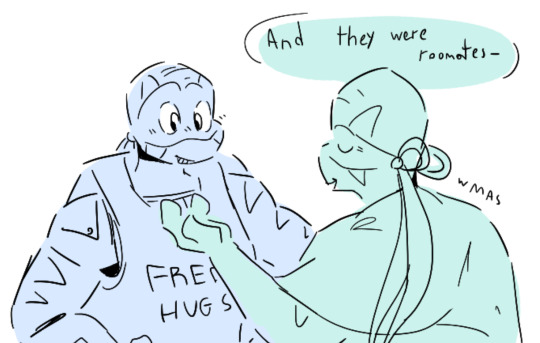

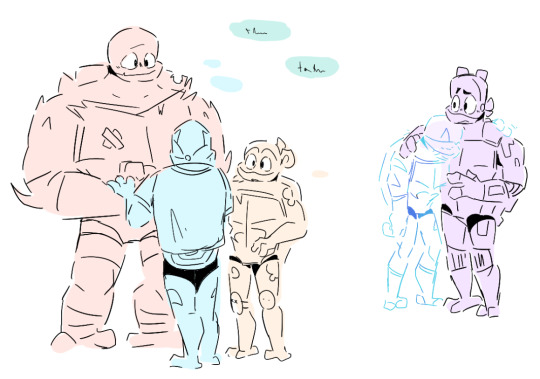
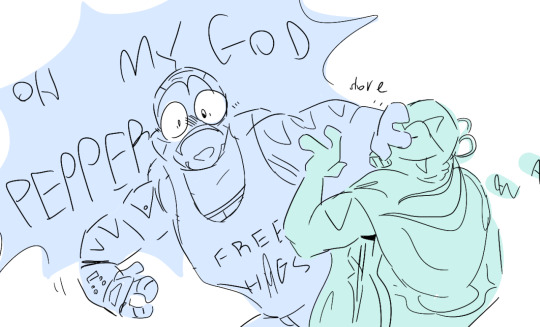
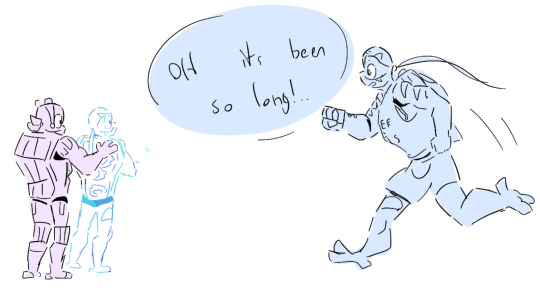



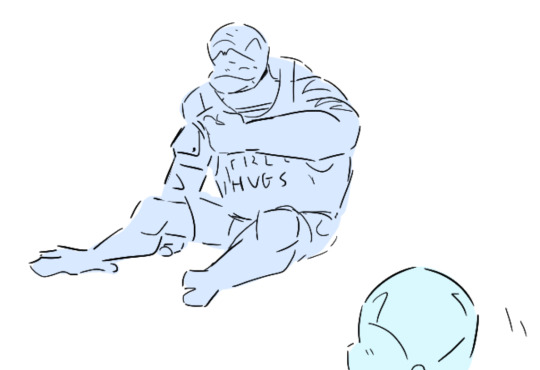


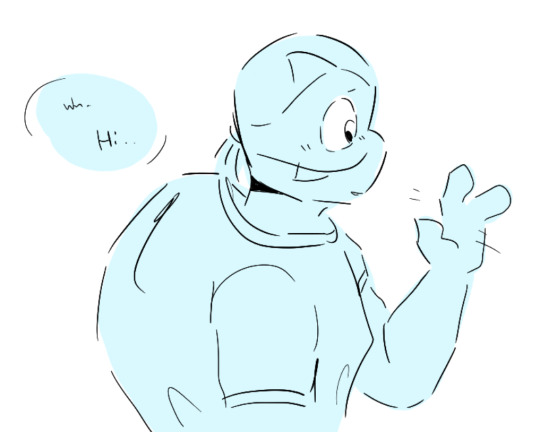
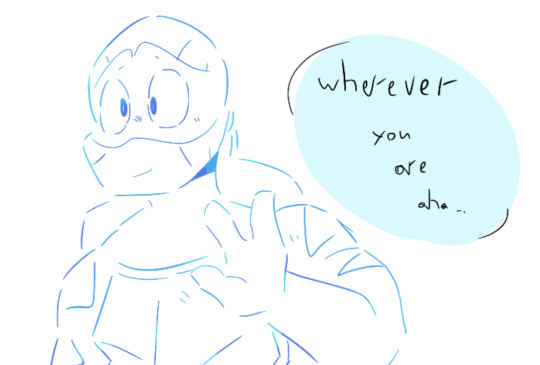
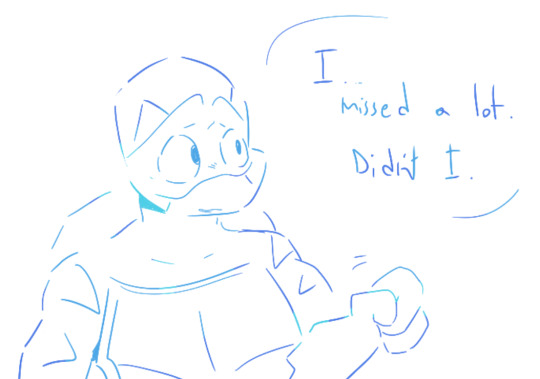

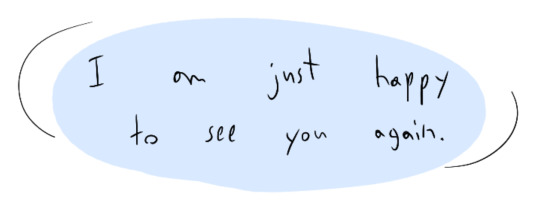
Hello. I thought sending Dandy Poptart would be funny. I was wrong, very wrong. Take this comic so I can atone for my crimes <3
I do hope people remember the Pepper nickname he had, haha
WMAS peepaw stolen from @chiangyorange dont worry the shove in the face didnt hurt <3 (physically)
#2 arms left#i may be invisible#imbi#rottmnt#crossovers#idk how to tag crossovers haha#uhhhhh oops im posting this at such a weird time#ah whatever#enjoy#comic is a comic#no matter how odd the time is#the besties#imbi my beloved#did you know I love imbi?#I love imbi.#oh chiangy!!!!#no clue if you are reading my tags but if you want a huggy inbox leo lmk <3#hug saga
744 notes
·
View notes
Text
gnc and butch women (cis AND trans) and transmascs are punished for performing masculinity past certain thresholds of arbitrary attractiveness because people that cishet society categorizes or clocks as 'women' are not supposed to perform masculinity. hope this helps 👍
#spitblaze says things#this is the last thing im ever gonna fuckin say on the topic. im purging this stupidity from my brain once and for all with this post#there is an intersection of transphobia and misogyny here and idc what you wanna call it but to deny its existence is weird to me#transfems' hypervisibility means they have a lot of recognition but its absolutely not a privilege#transmascs' invisibility means they can stealth and fly under the radar easier which is better but not by a lot#and the assertion that nb people have to 'pick a side' so we can decide how to treat them is fucking ludicrous#there are absolutely differences in our treatment and our needs but a lot of it boils down to the same shit.#we are women when they want to deny us agency. we are men when they want to deny us support. this is true for everyone under the umbrella#and it's MEASURABLY worse when you're not white#anyway. im kinda over leftist groups who spend all their effort arguing about theory instead of doing anything in practice#so the next person who claims butch lesbians have 'masc privilege' or that transmascs dont actually face any sort of unique oppression#is getting smacked with a heavily vandalized copy of abigail schrier's Irreparable Damage#like again idgaf what you call it. you can just call it 'transphobia and misogyny' if you want im not a cop#ive just seen too many people who claim that it doesnt exist at all and im done with letting this take up brainspace#so im hanging up this sign and leaving. goodbye#i saw us go through the exact same shit with bisexuals and asexuals and gay men and frankly im not thrilled that its at my doorstep again#we go through a lot of the same shit but different populations do in fact need different kinds of support. thats it
99 notes
·
View notes
Text

—Eric Bogosian, Mall (2000)
#what does he know??#does he have the sight or what#eric bogosian#and his weird invisible string career
99 notes
·
View notes
Text

#invisibility cloak#meme#funny#funny memes#haha#humor#lol#memes#funny shit#weird memes#funny post#real#so real
47 notes
·
View notes
Text
Thinking about Charles Xavier, who is simultaneously aware of everyone but at the same time not because if he was himself to the fullest people find him upsetting and rude and nosy
Thinking about his unshakable sense of morality, right and wrong and justice that he formed at the age of 9 and has kept ever since, with modifications along the years but those core values remain
Thinking about how the overstimulation of a thousand voices in his head drove him to self medicate to the point of nearly addiction
Thinking about how he has difficulty reading people when his power is not in use, ending up saying the worst things without meaning to upset no one
Thinking about how everyone should be “mutant and proud” except Charles over there that is too passing to be a mutant but too weird to be a human and simultaneously his mutation, the way his brain is fucking wired, is too inconvenient for everyone around him mutant and human alike to accept
Charles Xavier they would never make me hate you. You and your autism telepathy
#x men#charles xavier#I’m firm in this belief#Charles is the poster boy of invisible disability in first class and I mean it#no one lets him stretch his mutantion than they have the audacity to be mad that he didn’t understand their weird subtext#Raven I’m looking directly at you#if you want to be clear about your feelings with your brother but doesn’t want him in your head FUCKING TALK TO HIM#he is a mind reader that won’t read your mind!!! he has no way of knowing shit#because as the movie showed us#Charles and social cues have never been in a room together ever#Erik put one singular helmet and Charles was absolutely fumbling that social interaction#sure it was part stress of the situation but everyone agrees that telling the holocaust survivor#“they are only following orders” was the greatest misreadings of a situation ever#Charles also has a emphaty problem born also from his mutation#he has a lot of it#many time to his own detriment#because he has seen and experienced everyones shoes#he has walked them all#so he can’t separate the idea that someone so rich as another person deserving of extre punishment#even when that is the only option available#do you think his telephaty gave him identity issues?#what do you think is Charles Xavier perception of self?
50 notes
·
View notes
Text
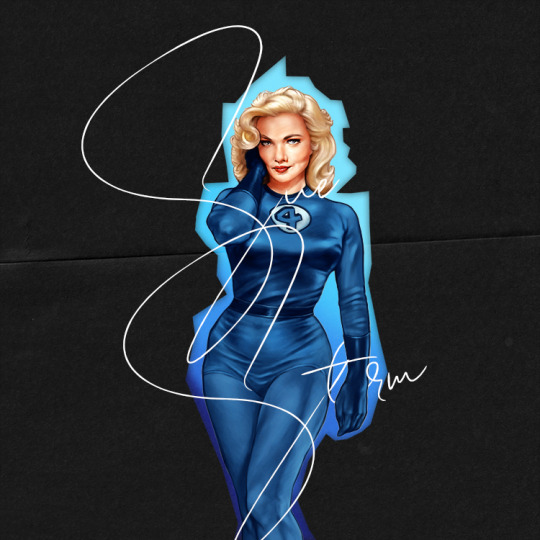
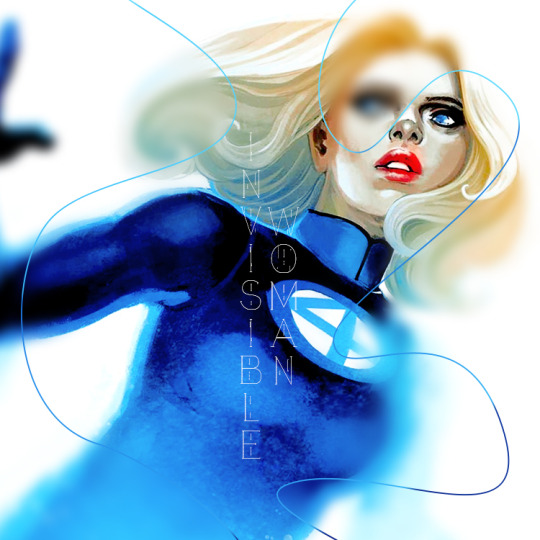

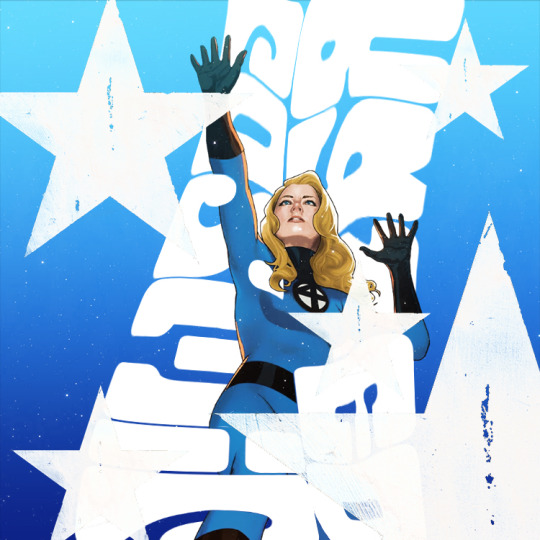
brieuc's 1k celebration; url edit for @cosmicrayed
#usermaguire#userraffa#userscottie#tusergio#userthona#usermattz#usermissy#marvelcolors#comicswomen#comicedit#marveledit#fantasticfouredit#susan storm#invisible woman#art by stephen langmead & stephanie hans & taurin clarke#many thanks for j for helping me with illustator#i know its been. a while! since i actually posted things i went thru the Horrors creatively but we r BACK!#thank u laura who is wonderful and the worlds foremost sue storm scholar#*mine#been a while since i posted edits direct 2 this blog. feels weird!#*my1k
188 notes
·
View notes
Text


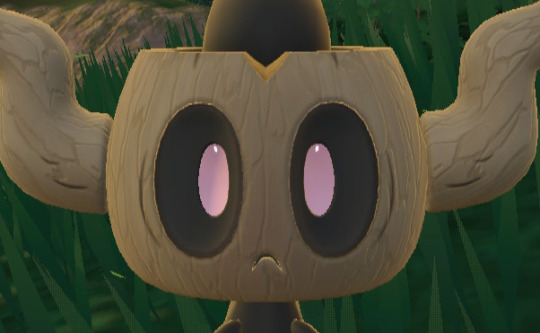
#something is very obviously different about these two compared to my normal images on this blog. i acknowledge this#also the sv model is Really good. and since they always stare straight at the camera anyway… and no one pays attention to the background…#and the only high-quality phantump model i could find was so horribly shiny that its eyes were just white voids#in my defense‚ phantump always just stare straight at you in game#the lighting is different‚ yeah. that's probably the dead giveaway. beyond the background. but like. i'm the only being on the planet who#really likes phantump anyway. i feel like it's a generally forgettable pokémon to most folks#phantump#HELLO this one is a weird one. i have some explaining to do. so when i did this one i didn't know how to edit models really at all#and when i got the models for these‚ the xy models were super shiny. shiny to the point that it made their eyes fuckin invisible#and i decided that since you could barely tell it was phantump‚ i needed a different way to get these images#i remembered that in the SV dlc‚ every time you find a wild phantump‚ it just fucking. stares. at you. and i was like. aha#i kinda remembered because of the test stream that i did. tumblr user alligayytorr (am i getting the right amount of Ys) said#“haha i am getting a sneak peek” when i zoomed the camera in on a phantump. and i remembered that. and i was like. i can utilize this#and ended up using just an in-game screenshot of SV in replacement of the regular content. later on‚ after that#once we got into gen 7 and it became less and less reliable to find models‚ i had to learn how to edit them manually to remove the shine#i am a software dev. not a 3d modeler. this ended up coming down to editing the code of the models directly (which i ended up writing a#script to automate). now‚ today‚ january 22nd (the day of me writing these tags and updating this post)‚ i remembered this post was in the#queue and was not normal. so i went back‚ ran the script on the phantump and trevenant models‚ and unshinified them#then edited these two posts to be normal. i have left the original pictures i took under the cut for reference and as bonuses#because i really enjoy phantump. so that's why those images are there‚ and that's why these tags are here#just for posterity's sake‚ the folks who come here mostly for my commentary‚ i've left the ORIGINAL tags of the post when i initially#made it with the SV pictures up at the top (i wanted to rearrange them‚ but tumblr makes that Very difficult‚ so i left them as-is)#so if these tags are confusing to read i Apologize. but i hope now that you're at the bottom you understand what happened#i'm gonna go edit the trevenant post now
124 notes
·
View notes
Text
Jack au where he's a psychic who can commune with ghosts. Almost every major character from Supernatural is a ghost. Including Sam Dean and Cas. This would serve these major tennants of his relationships:
Isolated. The people Jack spends the majority of his time with are NOT part of the normal world. Sam, Dean, Cas and Mary live in a bunker and don't know how to be people. The AU hunters are literally from another world. His mom is dead. Kaia is split between realms. The only Real people he knows well are his young adult nerd friends and arguably Harper. You don't want 1/4 of your tie to reality to be a witch who wants to be Cheryl Blossom from Riverdale as her life's aspiration. That's no way to live!
Intangible. Because of Jack's immense power, he is, in a sense, untouchable. He is stopped when people hug him or push him or shoot him because he chooses to stop. There is a veil between him and them. There is also a scarcity of common ground. There is nothing else out there like him. Dean might stomp and bark and howl but, ultimately, what can he do to Jack physically? Nothing. The only power the ghosts have is emotional and social. Imagine being outcasted by the ghosts who can only see you and each other. Ouch!
Fleeting. Everyone he cares for is doomed to die. This happens even before he's born with Cas and Kelly and Mary, but also throughout his life. He both has long strings of tragedy in short periods AND he's immortal and worries about it. Loss and loniness are inevitable for him on a massive scale. Cas might claim that he'll be there with him but he dies like twice a year at least. Picture ghost!Cas midway through a reassuring speech that he's always going to be there with him fading out into the veil mid-sentence.
Guilt-ridden. Life is wasted on the living, isn't it? Youth is wasted on the young. He's got dozens of ghosts needing him to live in the way they want him to so they can feel alive again, and he's not capable of being that (literal) lifeline. He needs to learn how to say no and stick to it. He needs to learn how to live with the fact that he has to disappoint people to live well sometimes. He has to engage with the living, because the dead are going to kill him if he hangs on to them too long.
So if someone could write this devestating yet beautiful 25k+ fic for me that'd be really swell.
#jack kline#spn au#I'm picturing bbc ghosts style jack having full on conversations with a hoard of invisible bickering weirdos#the biggest hurdle i think is him not emerging fully formed as a young adult for this#because like. I cannot picture a jack childhood at all. that WOULDN'T radically alter his character.#if he's raised by kelly then he needs a strong relationship with her which fucks with that#if he's raised by (distant and grieving) mary that weirds up the sam and dean stuff like is mary still their mom or like a distant relative#how did she come into parentage of jack.#if he's raised by lucifer or dagon that's a whole new can of worms that would be very distracting from the quiet lonely vibes of the rest#if he was in foster care or state funded homes that's another set of traumas and cast of characters who would inevitably have shaped him#if he's raised by au!bobby then he'd have to have a stronger relationship with him than feels right to me#if we handwave his past that also feels weird#maybe he has amnesia. lol. but that really would need there to be a history he comes back to#maybe he really is a magical baby still. he already has magic powers to talk to the dead.#cawis creates
40 notes
·
View notes
Text







♫In sleep she sang to me, in dreams she came...♫
#the sims 4#ts4#ts4 screenshots#ts4 edits#ts4 simblr#show us your sims#sims 4 screenshots#sims community#my sims#OCs: Scylla#OCs: Effrosyni#WIPs: Project Siren#Phantom of the Opera AU#This post was meant to be way longer...#also a lot of these have weird white borders where it's supposed to be invisible and idk what to do about that#NE way HAPPY HALLOWEEN!!!#here's some more toxic yuri!!!!
20 notes
·
View notes
Text
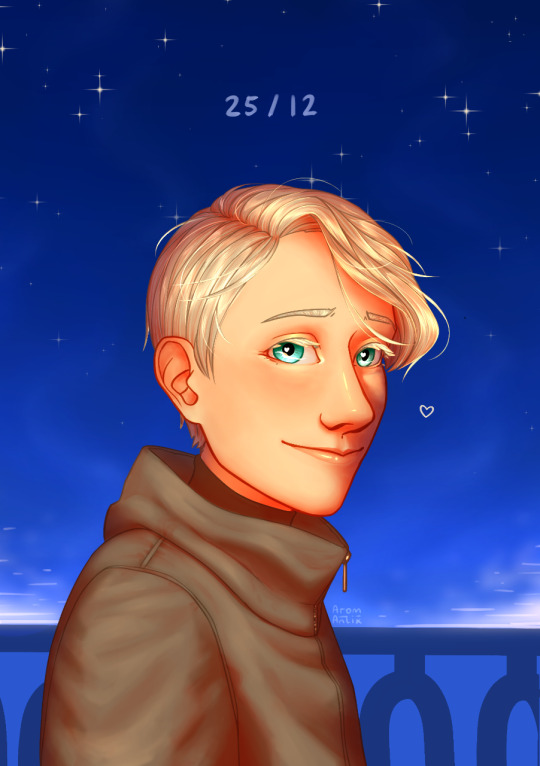
Happy birthday to the man, the myth, the legend, trophy husband of Yuuri Katsuki, Viktor Nikiforov!
#oh and fuck that post#HAPPY BIRTHDAY MY BOI YOU DESERVE THE WORLD#christmas ends on the 24th here so GUESS WHAT#THE 25TH IS ALL ABOUT VIKTOR BABYYY#also theyre married your honour idc what plaintiff has to say because im right they have no grounds to sue#anyway i drew this before yuuris birthday and has been sitting on it for a month now and i am SO glad to get it posted#and despite having that much time to prepare this post im sitting here on christmas eve and typing this out while hiding from festivities#also IGNORE THAT THE COAT ISNT ACCURATE I JUST DREW IT OKAY#its embarrassing as someone who lives in a cold country to draw a winter coat wrong#people from warm countries have no idea what im talking about probably and if you do or are from a cold country and know then no you dont#the coat is perfect youre just imagining things#also lemme tell you those eyelashes made me so happy to draw#i ADORE pale lashes theyre so fun#tbh i adore all colours but im particularly fond of white grey and black hair and white lashes#its just so chefs kiss#if you have pale invisible lashes that you think make you look weird no they dont they make you look incredible#also yes this is ABSOLUTELY a companion piece to the birthday piece i did for yuuri#i said i liked to imagine that piece being how viktor sees yuuri#well heres viktor looking at yuuri#yuri on ice#yuri on ice fanart#fanart#art#arom antix art#arom antix#viktor nikiforov
97 notes
·
View notes
